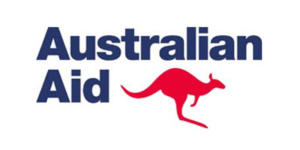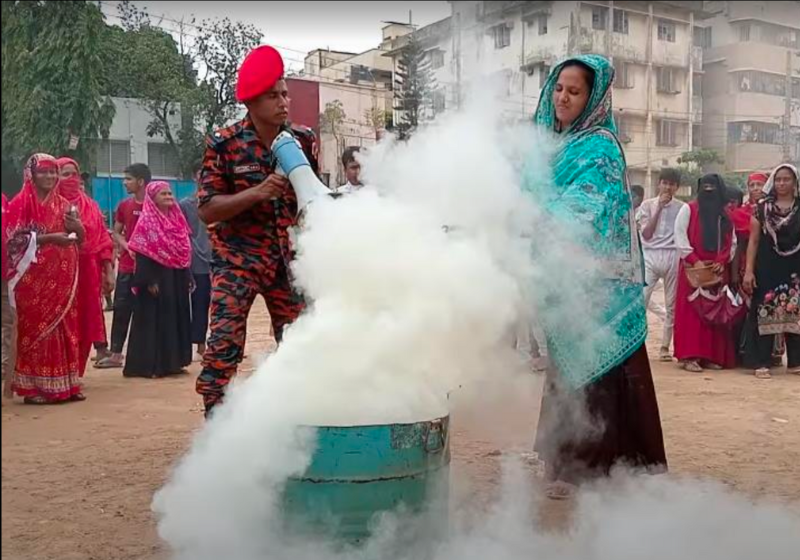In congested informal settlements like Beguntila in Mirpur, Dhaka, fire lurks like an unseen predator, always poised to strike. Houses in the informal settlements are stitched together with whatever materials can be found — bamboo, hay, corrugated iron, cardboard, and plastic sheets — creating a patchwork that’s easily flammable. In these communities, where every inch of space is precious and homes huddle close together, a single spark can unleash a devastating inferno, sweeping through the settlement with merciless speed. The residents of Beguntila, already living on the edge, face the constant fear of losing what little they have. Without adequate fire safety measures, they stand vulnerable, their lives and dreams perpetually shadowed by the constant threat.

It’s important for the residents to undergo fire risk management trainings because these sessions equip them with essential knowledge and practical skills to prevent and respond to fire incidents. In areas where professional firefighting services are limited, residents become the first line of defence against potential disasters.
With this in mind, Habitat for Humanity developed the ‘Fire Risk Management and Response’ training. Participants were taught how to identify fire hazards in their homes and surroundings, preventive measures to mitigate fire risks, how to properly use fire extinguishers, and how to execute safe evacuation plans. A mock drill was also organised to promote a culture of safety and awareness and encourage proactive measures and vigilance.
The training comprised of lectures and presentations, interactive workshop, group discussions, quizzes and practical assessments to evaluate the understanding of the topic. 40 members of the community participated in the event of which 35 were females and 5 males.
“I learnt a lot about the use of first aid and how to provide first aid when a disaster strikes. I’ve been sharing the knowledge with my neighbours and peers.” Nadia said, who joined the “Fire Risk Management and Response” training.
“The mock drill had dummy models to teach us how to respond to fire incidents. I’ve participated in various trainings over the years but I’ve never been on one like this. I’ve shared my learnings with other members in our community. I feel we’re more prepared now. There is no fear anymore.” – said Mala, one of the participants of the mock drill.
As the sun sets over the narrow alleys of Beguntila, a sense of security and confidence glows in the eyes of the residents. The mock drills have transformed uncertainty into practised readiness, turning potential panic into coordinated action.
The Building Resilient Urban Slum Settlements project in Dhaka, Bangladesh receives support from the Australian Government through the Australian NGO Cooperation Program (ANCP) and is in partnership with our implementing partner Habitat for Humanity Bangladesh.



